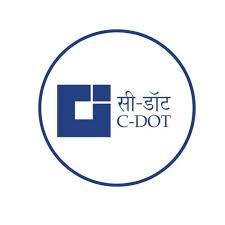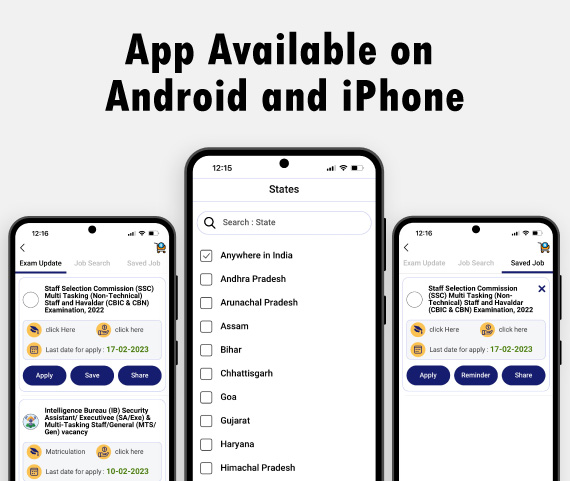Exam Syllabus
1. General Knowledge and Current Affairs
Knowledge of Current Events
Budget and Five-Year Plan
History
Scientific Inventions and Discoveries
India and its neighbouring countries
Economy
Important Financial and Economic News
Current Affairs – National & International
Indian Constitution
Sports
Culture
Countries & Capitals
Geography
General Politics
Scientific Research
2. Perspectives in Education
A. History of Education: The Education in Ancient India – Pre-Vedic and Post-Vedic period, Medieval Education, Education in Pre Independent era – Woods Despatch (1854), Hunter Commission (1882), Hartog Committee (1929), Sargent Committee (1944), Education in Post Independent era – Mudaliar Commission (1952-53), Kothari Commission (1964-66), Ishwarbhai Patel committee (1977), NPE-1986, POA1992
B. Teacher Empowerment: Need, interventions for empowerment, Professional code of conduct for teachers, Teacher motivation, Professional development of Teachers and Teacher organizations, National / State Level Organizations for Teacher Education, Maintenance of Records and Registers in Schools.
C. Educational Concerns in Contemporary India: Democracy and Education, Equality, Equity, Quality in Education, Equality of Educational opportunities, Economics of Education, Education as Human Capital, Education and Human Resource Development, Literacy – Saakshar Bharat Mission, Population Education, Gender – Equality, Equity and Empowerment of Women, Urbanization and migration, Life skills, Adolescence Education, Value Education – Morel Value and Professional Ethics in Education, Health and Physical Education, Inclusive Education – Classroom Management in Inclusive Education, Role of Education because of Liberalization, Privatization and Globalization, Programmes and Projects – APPEP, DPEP, Sarva Siksha Abhiyan,
D. Acts / Rights: Right of Children to Free and Compulsory Education Act – 2009, Right to Information Act – 2005, Child Rights, Human Rights.
E. National Curriculum – Framework, 2005: Perspective, Guiding Principles, Learning and Knowledge, Teaching-Learning Process, Assessment, Systemic Reforms.
3. Educational Psychology
A. Development of Child: Development, Growth & Maturation – Concept & Nature. Principles of development and their education implication. Factors influencing Development – Biological, Psychological, Sociological, emotional. Dimensions of Development and their interrelationship – Physical and motor, Cognitive, Emotional, Social, Moral, and Language relating to Infancy, early Childhood, late Childhood, and Adolescence. Understanding Development – Piaget, Kohlberg, Chomsky, Carl Rogers, Erikson.
B. Individual differences: Inter and intraindividual differences, meaning, nature and theories of intelligence with special emphasis on multiple intelligence, IQ, assessment of intelligence, EQ, and Creativity. Attitude, Aptitude, Interest, Habit and its Influence on Intelligence – Classroom implementation.
C. Learning: Theories and approaches of learning, learning curves, Factors, Phases, Dimensions of learning, Types of learning, Transfer of learning. Memory, Forgetting, Learning and assessment– Classroom implementation – Children with special needs – Inclusive Education.
D. Personality: Nature, characteristics and theories of personality, factors of Personality, Assessment of Personality, Mental health, Adjustment, Stress – nature, Symptoms and management. Emotional intelligence, Management of emotions Classroom implementation.
4. Content- Language- II(English)
Poets, Essayists, Novelists, Dramatists and their works
Forms of Language – Story, Essay, Letter writing, Editorial, Precis writing, note-making, autobiography and biography
Pronunciation – Sounds – Use of dictionary
Parts of Speech
Tenses
Types of Sentences
Articles and Prepositions
5. Methodology
Aspects of English:- (a) English language – History, Nature, Importance, Principles of English as a Second Language (b) Problems of Teaching / Learning English.
Objectives of Teaching English.
Phonetics
Development of Language skills:- (a) Listening, Speaking, Reading & Writing (LSRW) and (b) Communicative skills.
Approaches, Methods, Techniques of Teaching English: Introduction, Definition and Types of Approaches, Methods and Techniques of Teaching English, Remedial Teaching.
The teaching of Structures and Vocabulary items.
Teaching Learning Materials in English
Lesson Planning
Curriculum & Textbooks
Evaluation in the English language
A. Arithmetic: Day Day Mathematics, Pre Mathematical concepts – Money and time, Percentage, Interest, Profit and Loss, Time and Work. Ratio and Proportion – Applications of Ratio- Comparing Quantities using proportion -Direct and Inverse proportion
Number System: Numbers – four fundamental operations (addition, subtraction, multiplication & division) Patterns in Numbers. Knowing Our Numbers-Indian & international systems – Rounding of numbers- Natural numbers – Whole Numbers – Playing With Numbers-divisibility rules & HCF -Integers – Fractions – Decimals -Rational Numbers -Squares, cubes, Square roots, Cube roots
B. Geometry: Shapes– Patterns – Basic geometrical ideas – Measures of Lines and Angles – Symmetry – Understanding 3D, 2D Shapes -Representing 3D in 2D-Lines and Angles -Triangle and Its Properties -Congruency of Triangles- -Quadrilaterals – Practical Geometry -Construction of Triangles – Construction of Quadrilaterals – Exploring Geometrical Figures. History of geometry.
C. Mensuration: Spatial understanding -Length – Weight – capacity – Perimeter & Area of Plane Figures (triangle, square, rectangle, rhombus, circle, trapezium, parallelogram) Surface area and volume of cube, cuboid, cylinder.
D. Algebra: Introduction to Algebra- Simple Equations- – Algebraic Expressions – Exponents & Powers – Linear Equations in one variable – polynomial – Factorization.
Statistics: Data handling – Frequency Distribution Tables and Graphs. Grouped data and ungrouped data.


.jpeg)

